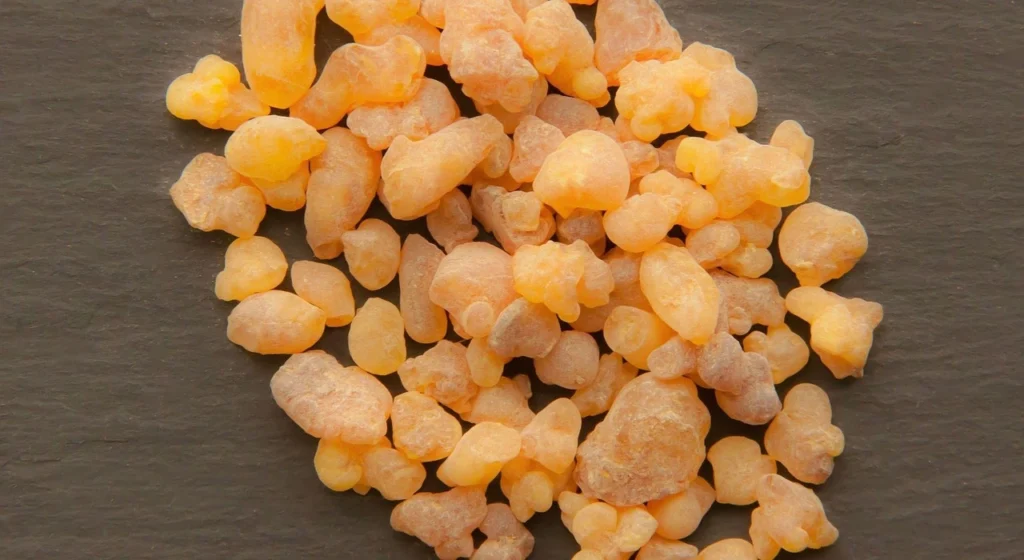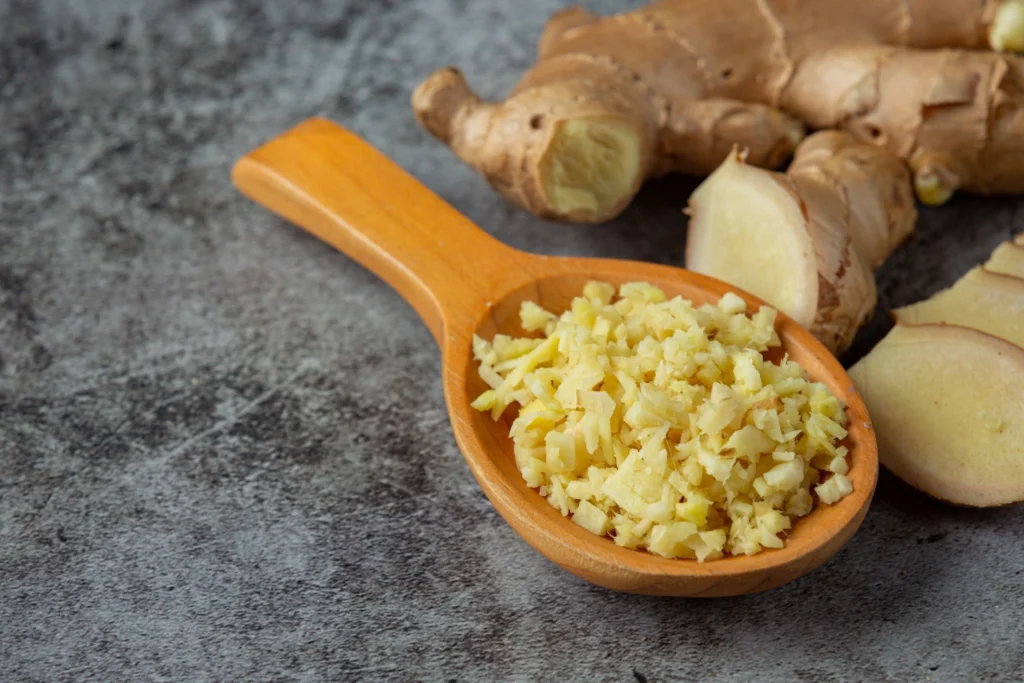4 Powerful and Natural Anti-Inflammatory for Dogs : Holistic Relief
Table of Contents

Watching your dog struggle with stiff joints, skin flare-ups, or chronic pain is tough. You know something isn’t right, and seeing them uncomfortable every day is heartbreaking. You’re not alone—many dog owners are searching for safer ways to ease inflammation without relying solely on prescription meds. The good news? Nature offers some incredibly effective solutions.
In this guide, you’ll explore four herbs that are natural anti-inflammatories for dogs, trusted by holistic veterinarians and dog lovers who want the best for their furry companions. These herbal options are gentle, effective, and can support your dog’s well-being from the inside out.
Natural Anti-Inflammatory for Dogs : Why Inflammation Is a Big Deal for Your Dog ?
Inflammation is your dog’s natural defense mechanism. It’s how their body fights off injury, infection, or allergens. However, when inflammation persists over time, it can contribute to serious long-term health problems.
What Causes Inflammation in Dogs?
Your dog might be dealing with inflammation for a variety of reasons:
- Joint conditions like arthritis or hip dysplasia
- Skin issues such as hot spots or rashes
- Allergic reactions to food or environmental triggers
- Digestive problems like leaky gut or IBD
The Long-Term Impact
If left untreated, chronic inflammation can:
- Weaken your dog’s immune system
- Increase their discomfort and decrease mobility
- Contribute to long-term illnesses like cancer or autoimmune disorders
That’s why turning to natural anti-inflammatories for dogs can make a real difference—without the side effects of synthetic drugs.
The Problem with Conventional Medications
Sure, anti-inflammatory drugs like NSAIDs can provide fast relief. But they come at a cost—especially for long-term use.
Common Side Effects of NSAIDs in Dogs
- Upset stomach
- Vomiting or diarrhea
- Liver or kidney stress
- Behavior changes
You shouldn’t have to solve one issue only to create a new one. That’s why natural herbs are becoming a go-to solution for mindful dog parents like you.
The Best 4 Herbs That Are Natural Anti-Inflammatory for Dogs
You don’t have to choose between safety and results. These four herbs offer the best of both worlds—proven benefits and minimal side effects when used correctly.
1. Turmeric (Curcuma longa)
Turmeric is more than a trendy spice—it’s a powerhouse anti-inflammatory.
- Key Compound: Curcumin
- Main Benefit: Blocks inflammatory pathways at the molecular level
- Best For: Joint pain, arthritis, digestive inflammation
But there’s a catch—curcumin doesn’t absorb well on its own. You’ll need to combine it with black pepper (piperine) and a healthy fat like coconut oil for maximum benefit.
Golden Paste Recipe for Dogs
- ½ cup organic turmeric powder
- 1 cup filtered water
- 1½ tsp black pepper
- ¼ cup coconut oil
Simmer ingredients until thick. Store in the fridge and add ¼ tsp per 10 lbs of body weight to your dog’s food.

2. Boswellia Serrata (Indian Frankincense)
This ancient herb has been used in Ayurvedic medicine for centuries—and for good reason.
- Main Action: Reduces inflammatory enzymes in joints
- Best For: Osteoarthritis, joint stiffness, mobility issues
- Bonus: Works well alongside turmeric for synergistic relief
In one study, dogs with arthritis showed improved mobility and reduced pain after just six weeks of Boswellia supplementation.

3. Ginger (Zingiber officinale)
You may already use ginger when you have an upset stomach but it’s also a natural pain reliever for dogs.
- What It Does: Blocks pain-causing compounds (prostaglandins)
- Benefits:
- Eases joint discomfort
- Supports digestion
- Fights oxidative stress
- Eases joint discomfort
You can grate fresh ginger and mix a small amount into your dog’s meal. Start with a pinch for small dogs and no more than ¼ tsp for larger breeds.

4. Licorice Root (Glycyrrhiza glabra)
Licorice acts like a natural steroid—without the harsh side effects.
- How It Works: Mimics cortisol to reduce inflammation
- Effective For: Skin conditions, itchy paws, digestive tract issues
- Caution: Not safe for dogs with high blood pressure or kidney disease
Use this herb short-term and only under the guidance of your vet. Its sweet taste makes it easy to give in liquid or powder form.

Herbs that act like Natural Anti-Inflammatory for Dogs
| Herb | Active Ingredient | Best Uses | Precautions |
| Turmeric | Curcumin | Joint health, gut inflammation | Needs black pepper and fat for absorption |
| Boswellia Serrata | Boswellic acids | Arthritis, mobility issues | Monitor dosage with vet guidance |
| Ginger | Gingerol | Joint pain, digestive support | Use in small amounts; avoid in pregnant dogs |
| Licorice Root | Glycyrrhizin | Skin issues, gut irritation | Avoid in hypertensive or kidney-compromised dogs |
How to Safely Add These Herbs to Your Dog’s Diet
Natural doesn’t always mean safe in every situation. Here’s how you can start slowly and safely:
Best Practices
- Always check with your vet first
- Start with half the recommended dose
- Monitor for any allergic reactions or digestive changes
- Use organic, high-quality sources
Simple Ways to Add Herbs
- Mix into food as powders or pastes
- Use herb-infused broths or treats
- Choose natural supplements formulated for dogs
Conclusion: Healing the Natural Way
When you choose natural anti-inflammatories for your dog, you’re not just masking symptoms—you’re addressing the root causes of inflammation. Herbs like turmeric, Boswellia, ginger, and licorice root give you powerful tools to support your dog’s comfort, mobility, and overall vitality.
Start small, stay consistent, and you may be amazed at the difference you see in your pup’s energy and quality of life.
FAQs: Natural Anti-Inflammatories for Dogs
What is the safest natural anti-inflammatory for dogs?
Turmeric is one of the safest and most researched options when used properly, especially with black pepper and a healthy fat.
Can I use these herbs with my dog’s medication?
Some herbs can interact with prescription meds. Always consult your veterinarian before combining treatments.
How long before herbal anti-inflammatories start working?
You might notice subtle changes within a few days, but significant improvement often takes 2–4 weeks of consistent use.
Are there any risks to giving my dog herbal supplements?
Yes—dosage matters, and some herbs (like licorice) have specific health warnings. Always do your homework or talk to a holistic vet.
Ready to Support Your Dog Naturally?
You care deeply about your dog and it shows. By turning to natural anti-inflammatory solutions, you’re making an empowered, informed choice. Start by trying one of the herbs above, and watch how your pup responds.








Some really interesting details you have written.Assisted me a lot, just what I was looking for : D.
I like this web site very much, Its a very nice office to read and obtain information. “Reason is not measured by size or height, but by principle.” by Epictetus.
Pretty! This was a really wonderful post. Thank you for your provided information.
You made some first rate factors there. I seemed on the internet for the issue and found most individuals will go together with together with your website.
Normally I do not read article on blogs, however I wish to say that this write-up very pressured me to try and do so! Your writing style has been amazed me. Thanks, very great post.
I genuinely enjoy reading on this internet site, it holds good content. “The living is a species of the dead and not a very attractive one.” by Friedrich Wilhelm Nietzsche.
I’m not sure exactly why but this website is loading very slow for me. Is anyone else having this problem or is it a issue on my end? I’ll check back later and see if the problem still exists.
Great post. I used to be checking constantly this blog and I am impressed! Very helpful info specially the remaining section 🙂 I handle such information a lot. I used to be seeking this particular info for a long time. Thanks and best of luck.
Some really interesting information, well written and loosely user pleasant.